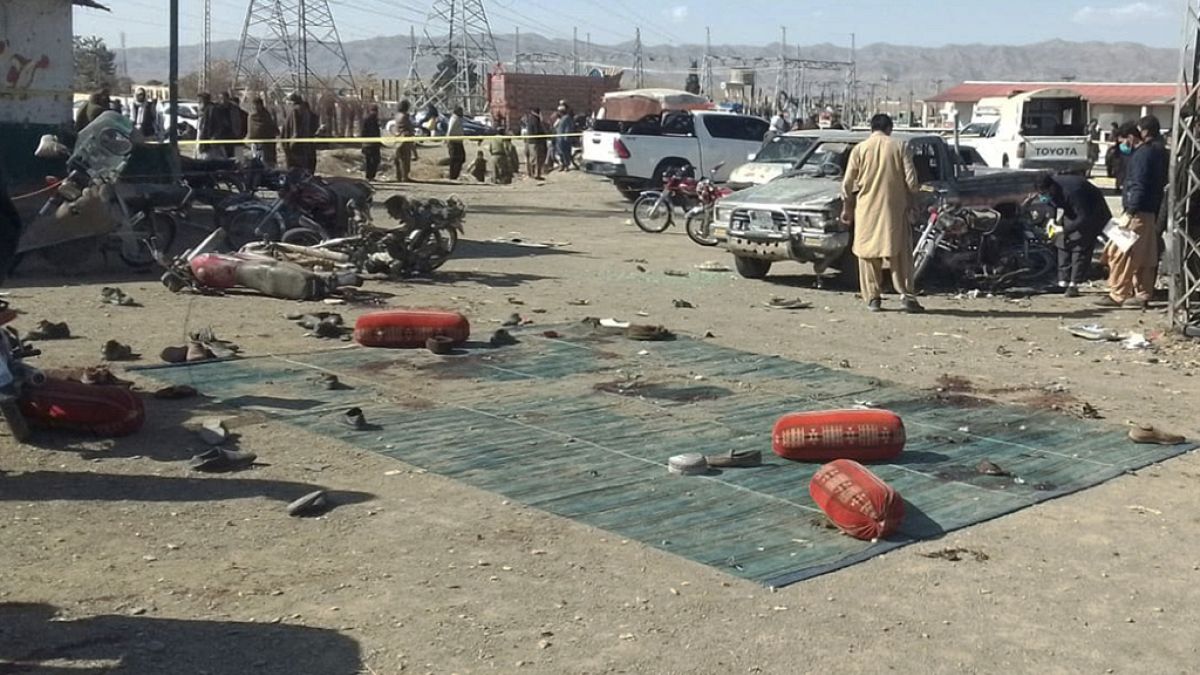Voting will begin tomorrow for parliamentary elections with police deployed across the country to ensure security.
A pair of bombings at the election offices of a political party and an independent candidate in southwest Pakistan killed at least 26 people and wounded more than two dozen others, officials said Wednesday.
No one immediately claimed responsibility for the attacks, which came a day before Pakistan holds parliamentary elections.
The first attack hit the election office of Asfandyar Khan in Pashin, a district in Baluchistan province, said Jan Achakzai, the spokesperson for the local government. At least 15 people were killed in the attack and the wounded, some in critical condition, are being transported to a nearby hospital, according to the officials.
Later Wednesday, another bombing at the elections office of politician Fazlur Rehman's Jamiat Ulema Islam party (JUI) in Baluchistan killed at least 11 people, authorities said.
Caretaker Prime Minister Anwaarul-Haq-Kakar denounced the bombings in Baluchistan, and conveyed his condolences to the families of those who died. He vowed that "every attempt to sabotage the law and order situation will be thwarted."
Kakar said the government is committed to holding elections in a peaceful environment.
Caretaker Interior Minister Gohar Ejaz also denounced the bombings, saying no one would be allowed to sabotage the election process.
Insurgency and radicalism
In recent years, Pakistan has struggled to rein in surging militancy. The bombings came despite the deployment of tens of thousands of police and paramilitary forces across Pakistan to ensure peace following a recent surge in militant attacks in the country, especially in Baluchistan.
The outlawed Baluchistan Liberation Army has been behind multiple attacks on security forces, including a January 30 attack on security facilities that killed six people.
The gas-rich province at the border of Afghanistan and Iran has been the scene of a low-level insurgency by Baluch nationalists for more than two decades. Baluch nationalists initially wanted a share of the provincial resources, but later they initiated an insurgency for independence.
Pakistani Taliban and other militant groups also have a strong presence in the Baluchistan province and have targeted civilians in recent years.
JUI is one of Pakistan's leading radical Islamist parties and is known for backing the Afghan Taliban. Its religious schools are spread across the country, especially in the northwest and Baluchistan bordering Afghanistan.
While many of Afghanistan's Taliban leaders studied at JUI's Islamic seminaries, Rehman and his party leaders have been attacked by the Islamic State group and other militants in recent years.
Violence ahead of elections and on the day of polling is common in the country. In one of the worst such attacks, Pakistan's two-time former Prime Minister Benazir Bhutto was killed in a gun and bomb attack in 2007, just minutes after she addressed an election rally in the garrison city of Rawalpindi.
Her son, Bilawal Bhutto-Zardari, led the campaign for her Pakistan People's Party until Tuesday night amid tight security.
